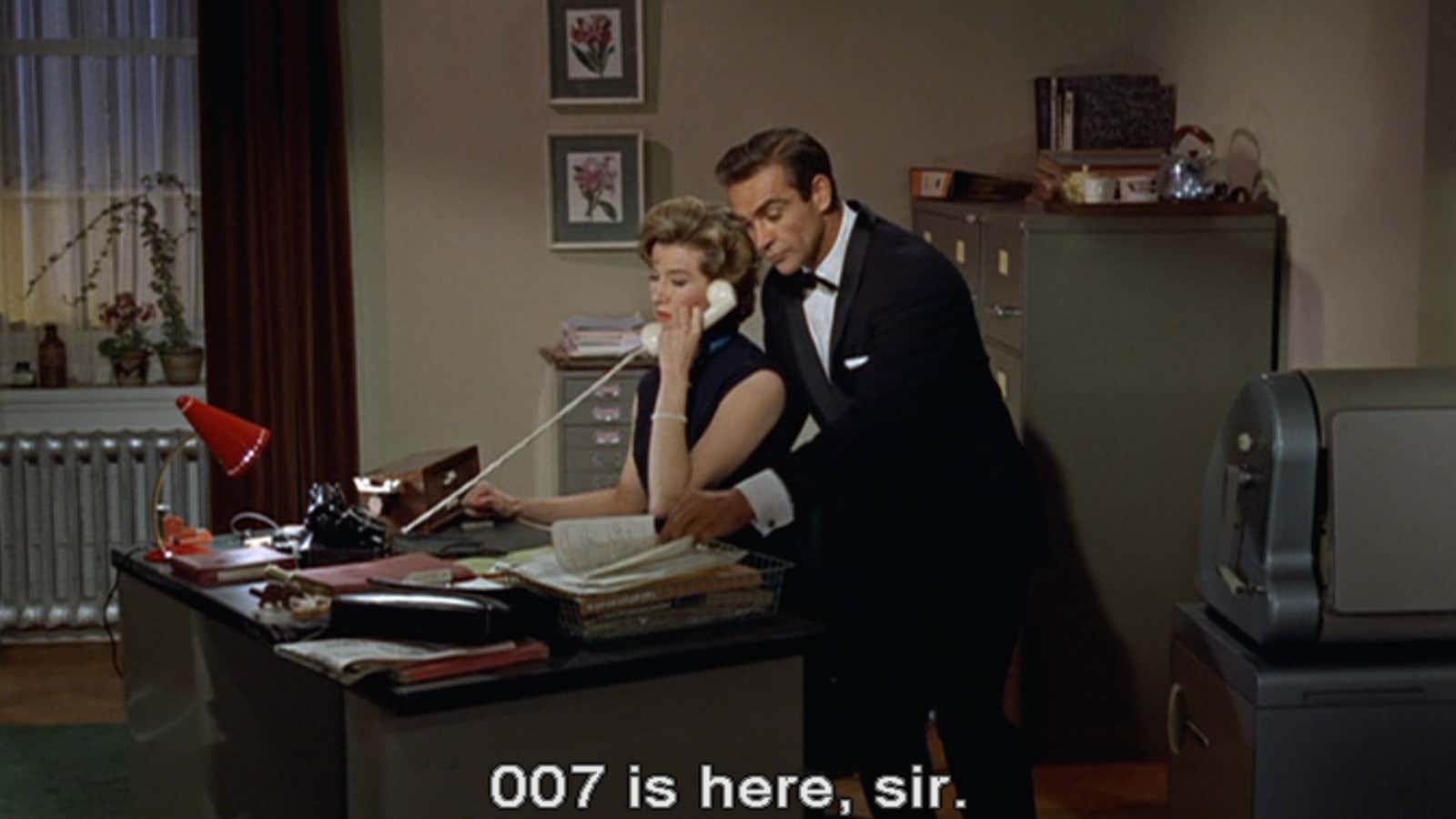Facebook is planning to add a virtual assistant to its Messenger app that can perform tasks for users, according to The Information (paywall).
The project is codenamed Moneypenney, the secretary in many of the James Bond films.
Really?
If Facebook is smart, the company will find a different name—Bob? Jim? Kurt?—for this bot before unleashing it onto the public. There’s already an unsettling trend of technology firms bestowing seemingly genderless virtual assistants with female names.
Clara, Cloe, Julie, Riley, Amy, to name just a few.
These startups profess to simplify your life by automating or outsourcing time-consuming activities like scheduling meetings or researching products. “Skip recruiting, hiring, training, and managing a person,” says one such service. “Clara can start supporting you immediately.”
There are a few male counterpoints—Jarvis is named after Iron Man’s personal assistant. Another service called GoButler could be presumed to be male, since butlers are overwhelmingly men, though there’s no male name attached to it. Alfred (which harks back to Batman’s butler) doesn’t plan things for you or email business associates like Amy does, but it is an errand service started by two Harvard Business School women. Judging by these examples, companies appear to be more comfortable with creating male assistants if they are based on existing fictional superheroes’ assistants or butlers. For some reason, fresh inspiration for female virtual assistants flows more easily.
Facebook would not confirm that this assistant is in the works, nor what its name will be. “We don’t comment on rumors and speculation. And that’s all rumor at this time,” a Facebook spokesperson tells Quartz.
This news comes a week after Facebook was showered with affection (including from Quartz) for moving women to the forefront of its friends icon. That was a change, made by a female designer, because she didn’t want to imply that women stand in the shadow of men. Given that more than two thirds of Facebook employees are men, it stands to reason that a woman may not have been in charge of this latest naming decision (Faceboook declined to comment).
